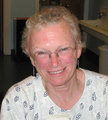
April 16, 2015 8:03 am Mindfulness by Carol Tolonen
I bet you’ve heard the term bandied about a good deal recently. Perhaps you’ve wondered what it’s really all about and whether it has any relevance to yourself or your parenting.
Although the concept has its origins in Eastern religious meditation practices, it has now gained a broad range of meaning and critical relevance to raising happy, healthy, and capable children of the twenty first century.
A simple definition of mindfulness is that it involves living in a way that you are aware of the inputs from both the environment around you and from your inner world. We cannot control that of which we are unaware. Mindfulness gives us the tools to affect some change on the stressors in our outer world and to gain some control over our inner response to those we cannot change.
There has been a bounty of research showing the positive effects of mindfulness on physical health, cognitive functioning, self-esteem, emotional functioning, quality of relationships, work habits… The list goes on and on. It almost sounds like the claims made for those “snake oil” potions sold by itinerant “doctors” in the 1800’s. But this time, it’s real. There is not only behavioral evidence but neurological evidence as well. In fact, understanding what is going on in our brains when stressors overwhelm us and trigger us into anxiety, anger or depression is one of the most effective tools of mindfulness. And it’s simple enough for very young children to understand.
And what’s even better, there is a wide variety of strategies available to become more mindful and thereby to gain control over our emotions and our behavior and become more effective in the world and most are simple to understand and can be learned by very young children. I don’t mean to suggest that mindfulness is a quick fix. It requires, in fact, a major change in our way of being in the world. But it is accessible to all of us, infants to centenarians, and every little bit can make a difference.
Mindfulness practices can be taught in schools, and research has shown that this approach makes a difference. Children learn most effectively, however, by modeling, so a mindful parent who creates a mindful household is the most effective teacher.
For parents who would like to learn more about mindfulness, I recommend the book Mindful Parenting by Kristen Race as a good place to start. I am planning a series of two workshops at Putnam Indian Field School to discuss the ideas in this book in May. The workshops will be held on consecutive Tuesdays, May 5 and 12, from 11:30 to 12:45 and are open to all interested parents. Arrangements can be made for children ages 3 and above who are enrolled in either the morning or afternoon program to come early or stay for lunch to accommodate parents who wish to participate.
And start today increasing your own mindfulness: Stop and smell the roses!
Carol Tolonen is a developmental psychologist and parenting coach. She is trained as a psychotherapist and as a spiritual counselor. She has 26 years experience teaching science and outdoor education to the children at Putnam Indian Field School.


